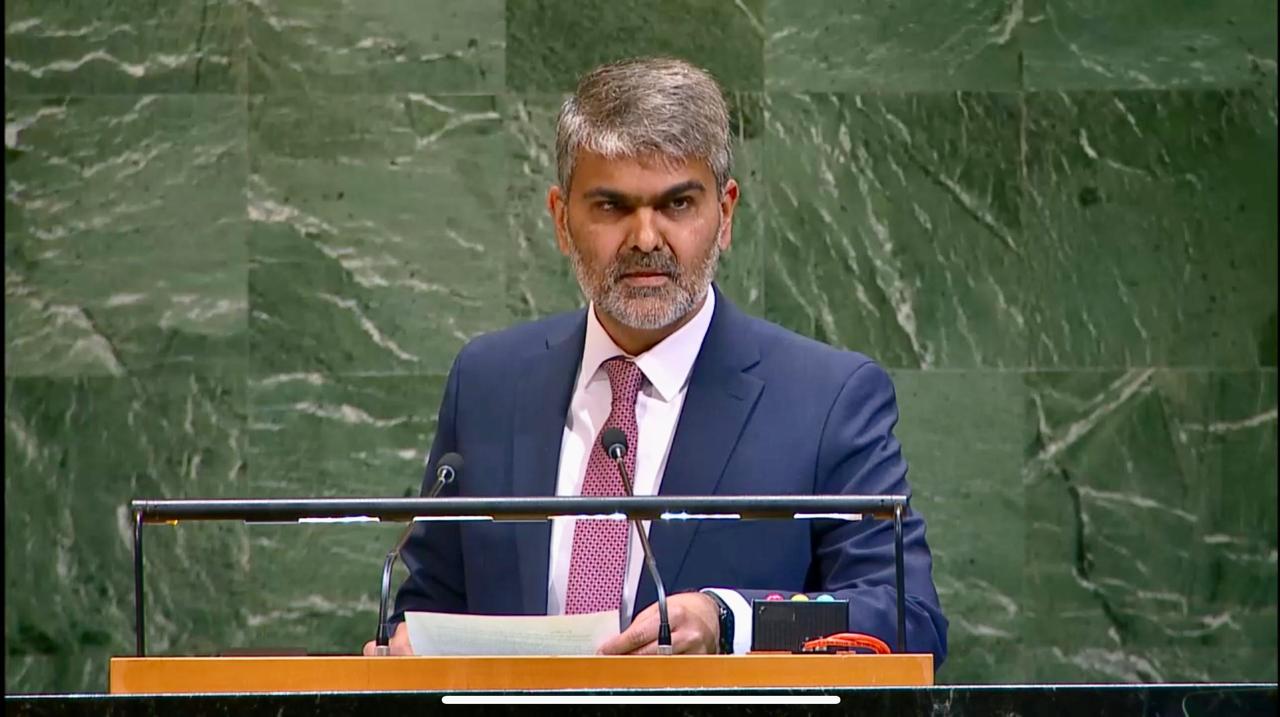Special Correspondent
UNITED NATIONS: While calling for full compliance by all states with their respective safeguards obligations, Pakistan has stated that International Atomic Energy Agency’s (IAEA) safeguards should not be used to serve partisan political objectives.
It underscored that the Agency’s verification regime will remain credible only if it is applied on a non-discriminatory basis as stipulated in the Agency’s Statute.
Speaking at the General Assembly Plenary on Agenda Item 89: The Report of the International Atomic Energy Agency (IAEA), Syed Atif Raza, Counsellor at the Pakistan Mission, said that Pakistan firmly believes that attacks on safeguarded nuclear facilities undermine the IAEA’s safeguards mechanism, contravene international law, the charter of the UN, Statute of the IAEA and relevant General Conference resolutions on the issue.
He said that in order to unlock the full potential of nuclear power, international cooperation and dialogue are of central importance, and highlighted the need for the removal of barriers for gaining equitable and non- discriminatory access to civil nuclear cooperation.
“There is a need to eliminate discrimination inherent in existing non-proliferation arrangements and establish a framework for promoting peaceful nuclear energy under appropriate international safeguards, in line with the international obligations of states and on a non-discriminatory basis,” he said.
The Pakistan Counsellor maintained that Pakistan has upheld the highest standards of nuclear safety and security in line with the IAEA standards. He said that the Pakistan Nuclear Regulatory Authority (PNRA), an independent national regulatory authority, has the critical mandate to uphold nuclear and radiation safety as well as nuclear security.
He further stated that Pakistan stands ready to share its experiences in designing and implementing comprehensive technical cooperation projects with members of the Global South.
He said that Pakistan’s vast experience in operating a safe, secure and fully safeguarded nuclear power programme speaks volumes about its capabilities and commitment. He further emphasized the need for unrestricted collaboration and fair access to civil nuclear technologies, particularly for those nations that are most vulnerable to the effects of climate change.
Pakistan reaffirmed its strong commitment to the peaceful uses of nuclear technology under the auspices of the International Atomic Energy Agency (IAEA), emphasizing its contributions across multiple sectors including healthcare, agriculture, water management, and education.
Syed Atif Raza mentioned the healthcare sector in which Pakistan continues to prioritize the application of nuclear technology for public welfare through a nationwide network of 20 cancer hospitals, providing affordable diagnostic and therapeutic services. He said that these facilities collectively conduct over one million procedures annually, catering to more than 80% of the country’s cancer patients.
NORI, an IAEA Anchor Center, has also trained international fellows under the Agency’s Rays of Hope initiative, he said.
The delegate further said that Pakistan’s four nuclear agriculture institutes have developed over 150 high-yield, disease-resistant crop varieties using nuclear techniques. He said that the Nuclear Institute for Agriculture and Biology (NIAB), designated as an IAEA Collaborating Center, is advancing research in improved varieties of cotton, wheat, and rice.
He said that in the area of water security, isotope hydrology has strengthened Pakistan’s groundwater mapping and sustainable resource management, with PINSTECH serving as another IAEA Collaborating Center.
Highlighting the importance of education and capacity building, Syed Atif Raza said that the Pakistan Institute of Engineering and Applied Sciences—also an IAEA Collaborating Center—has extended 20 fully funded international scholarships in nuclear science and related fields.
Pakistan reaffirmed that technical cooperation remains the cornerstone of its partnership with the IAEA, sharing its expertise with fellow member states through specialized training and collaborative initiatives.


Comments are closed.